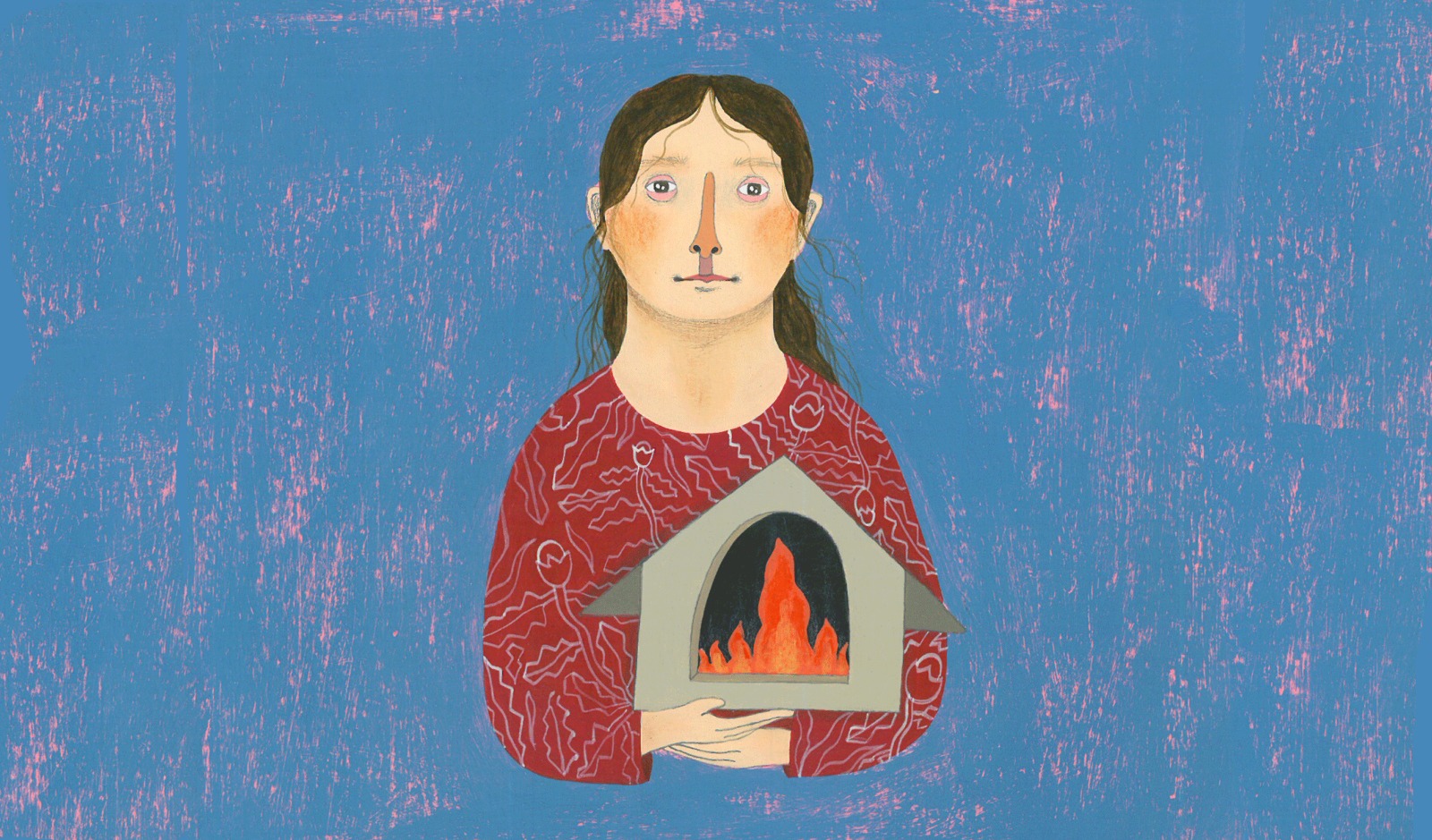‘I Am Not Your Refugee’ podcast series created with the support of The Pulitzer Center.
The ‘Media & Migration’ episode looks at why it’s important that media coverage of refugee issues is produced by those with lived experience themselves. With editors from Baynana in Spain, the Refugee Journalism Project in London, and one of the co-founders of Solomon magazine in Athens.

It’s part of a Pulitzer Center-funded podcast series on openDemocracy, created with artists, activists and journalists with experience of forced migration. Other episodes look at refugee-led projects in other areas: art, photography, music, LGBTQ+ solidarity, community organising and activism.
With a title inspired by James Baldwin, ‘I Am Not Your Refugee’ offers resistance and support in the face of closed camps and isolation, Frontex and loneliness, violent pushbacks and marginalisation. As policies across Europe become increasingly harsh, refugees are organising themselves to create pockets of solidarity and practical support. ‘I Am Not Your Refugee’ is produced by a network of Afghan, Syrian, Pakistani, Irish and Egyptian journalists, artists and activists.
‘Bring the people in who are affected,’ Mohamad Subat of Baynana said. ‘Refugees from Syria, who are talking about other refugees in Syria. So they feel the suffering, how it’s hard to be a refugee, what’s the meaning of fleeing your country — or the meaning of leaving everything behind, and starting from scratch in a new country with a new language with the new people with everything. Baynana , or between us, was the first initiative in Europe launched by refugees themselves to talk about refugees. So it’s a unique initiative.’
News outlets gain enormously – and the quality of reporting improves – when those with direct knowledge and experience are part of the media.
‘Every time Spanish media invite people without lived experience of statelessness to tried to discuss the immigration or the refugee crisis. they host a Western guest who talks about a problem they’ve never known about.,’ Subat said. ‘They’ve never lived it. They’ve never experienced the meaning of [being] a refugee or asylum seeker.’
It’s something Osama Gaweesh, an Egyptian journalist (currently producer of Untold Stories and tv presenter at Mekameleen) also notes:‘I think that diversity is very important in a newsroom because people here in Europe, in the United Kingdom, they only knew about the Middle East and other countries, superficial things, they don’t have the capacity to dig into these communities. But we came from these communities. We know about the cultures, we know about the problems, we know about everything, about [the] economy, about politics, about traditions. So I think it’s important to have these voices in the newsroom.’
‘We can talk about the tourism sector in Egypt from an Egyptian voice. We can talk about Captagon trade in Syria from a Syrian refugee. We can talk about the problem between Shia and Sunnis in Iraq from an Iraqi refugee. We can talk about the horrible things in Afghanistan, and the declining situation for women in Afghanistan, from a woman refugee from Afghanistan.’
Gaweesh participated in a programme called the Refugee Journalism Project (RJP), London. The Refugee Journalism Project supports refugee and exiled journalists to re-start their careers in the UK. Founded in 2016, it’s based at London College of Communication, part of the University of the Arts London.
Part of the process at the RJP is mentorship by more established journalists in the UK, and Gaweesh also received support from former RJP participants, including Abudulwahab Tahhan who produces his own series, Integrate That. (A podcast exploring his own integration challenges, and interviews with others – for example, one episode, ‘Where Do You Think You’re Going?’ is about the joys of going through airports with a refugee passport.)
‘We met with experts from the BBC, Bloomberg, and The Guardian,’ said Gaweesh. ‘And they introduced us to the industry as qualified, professional journalists who want another chance. This was amazing because they started to teach us how to pitch ideas, how to do freelance work.’
The RJP is open every year to exiled journalists in the UK, and if interested, check out their website and apply in 2023. Their latest podcast series, ‘Others Unheard’ includes this episode Women Under Taliban Rule about women’s lives under the current Taliban regime, by journalist Zahra Shaheer.
Although it can be difficult to gain the kind of training and support that the RJP offers, in many cases, refugee journalists themselves help set up their own media. In Athens, Nasruddin Nizrami in Athens is the co-founder of Solomon — an independent online magazine in Greek and English. Nizami explains that they ‘started with a very small group of migrant refugees in Greece and also with Greek locals.’ And with the growing population of Afghan refugees in Greece, Solomon magazine wants to continue to cover stories concerning Afghanistan and Afghan refugees in Greece and its diaspora. ‘We will always be focused on this issue,’ Nizami said.
Other great projects which are addressing this are Unbias The News and Hostwriter and hopefully the greater inclusion of refugee journalists in production roles – editing, and especially commissioning, and other gatekeeping roles.
While the lack of access to a professional network; the language; cultural and political bias in the host country; navigating bureaucracy while trying to find your feet; and not having your previous work recognised are all real problems. There is also potential for change, and for creating more space for journalists with direct experience of migration.
And it starts with listening to what displaced and exiled journalists are saying.
Listen to the Media episode with Osama Gaweesh, Nasruddin Nizrami and Mohamad Subat:
Embed code:Direct audio file URL: Clic here
Full series here: Clic here
Nos gustaría pedirte una cosa… personas como tú hacen que Baynana, que forma parte de la Fundación porCausa, se acerque cada día a su objetivo de convertirse en el medio referencia sobre migración en España. Creemos en el periodismo hecho por migrantes para migrantes y de servicio público, por eso ofrecemos nuestro contenido siempre en abierto, sin importar donde vivan nuestros lectores o cuánto dinero tengan. Baynana se compromete a dar voz a los que son silenciados y llenar vacíos de información que las instituciones y las ONG no cubren. En un mundo donde la migración se utiliza como un arma arrojadiza para ganar votos, creemos que son los propios migrantes los que tienen que contar su historia, sin paternalismos ni xenofobia.
Tu contribución garantiza nuestra independencia editorial libre de la influencia de empresas y bandos políticos. En definitiva, periodismo de calidad capaz de dar la cara frente a los poderosos y tender puentes entre refugiados, migrantes y el resto de la población. Todo aporte, por pequeño que sea, marca la diferencia. Apoya a Baynana desde tan solo 1 euro, sólo te llevará un minuto. Muchas gracias.
Apóyanosنود أن نسألك شيئًا واحدًا ... أشخاص مثلك يجعلون Baynana ، التي هي جزء من Fundación porCausa ، تقترب كل يوم من هدفها المتمثل في أن تصبح وسيلة الإعلام الرائدة في مجال الهجرة في إسبانيا. نحن نؤمن بالصحافة التي يصنعها المهاجرون من أجل المهاجرين والخدمة العامة ، ولهذا السبب نقدم دائمًا المحتوى الخاص بنا بشكل علني ، بغض النظر عن المكان الذي يعيش فيه القراء أو مقدار الأموال التي لديهم. تلتزم Baynana بإعطاء صوت لأولئك الذين تم إسكاتهم وسد فجوات المعلومات التي لا تغطيها المؤسسات والمنظمات غير الحكومية. في عالم تُستخدم فيه الهجرة كسلاح رمي لكسب الأصوات ، نعتقد أن المهاجرين أنفسهم هم من يتعين عليهم سرد قصتهم ، دون الأبوة أو كراهية الأجانب.
تضمن مساهمتك استقلالنا التحريري الخالي من تأثير الشركات والفصائل السياسية. باختصار ، الصحافة الجيدة قادرة على مواجهة الأقوياء وبناء الجسور بين اللاجئين والمهاجرين وبقية السكان. كل مساهمة ، مهما كانت صغيرة ، تحدث فرقًا. ادعم Baynana من 1 يورو فقط ، ولن يستغرق الأمر سوى دقيقة واحدة. شكرا جزيلا
ادعمنا